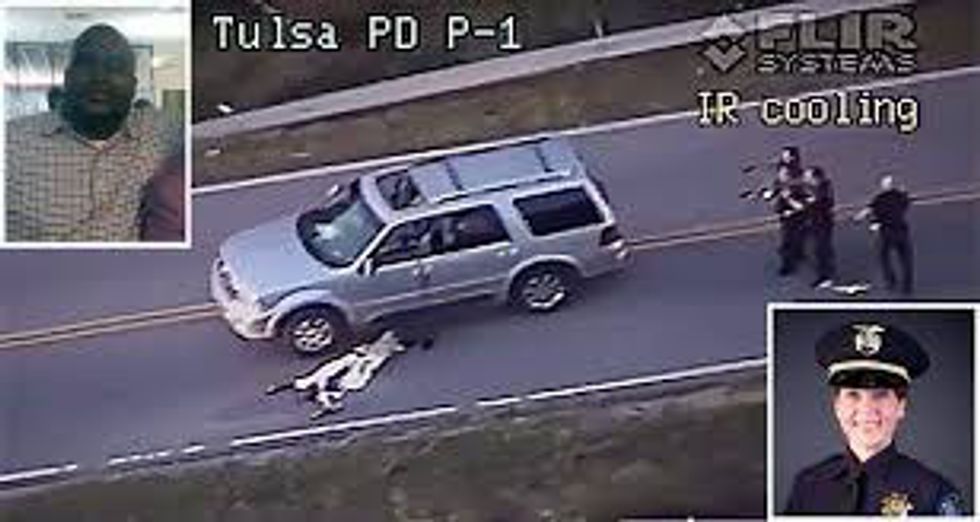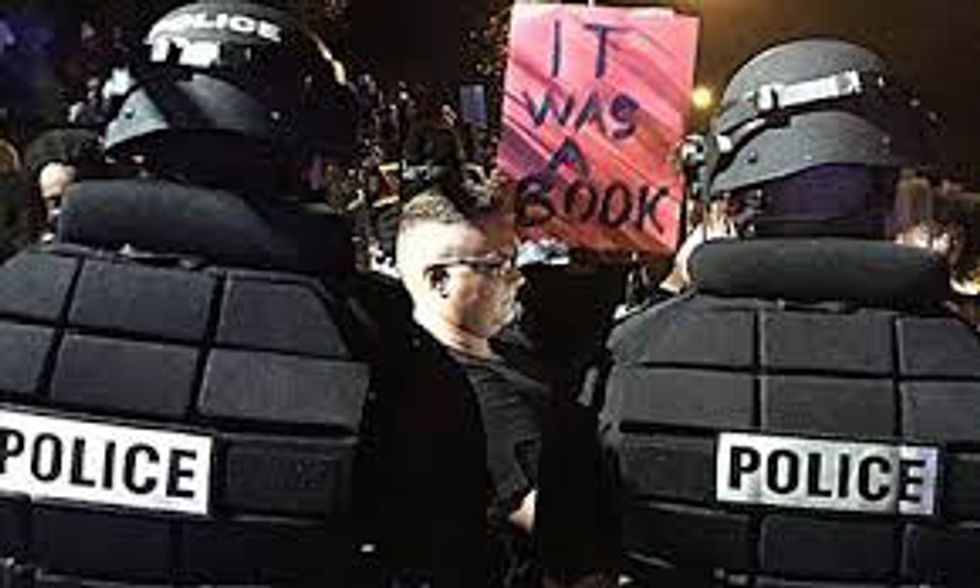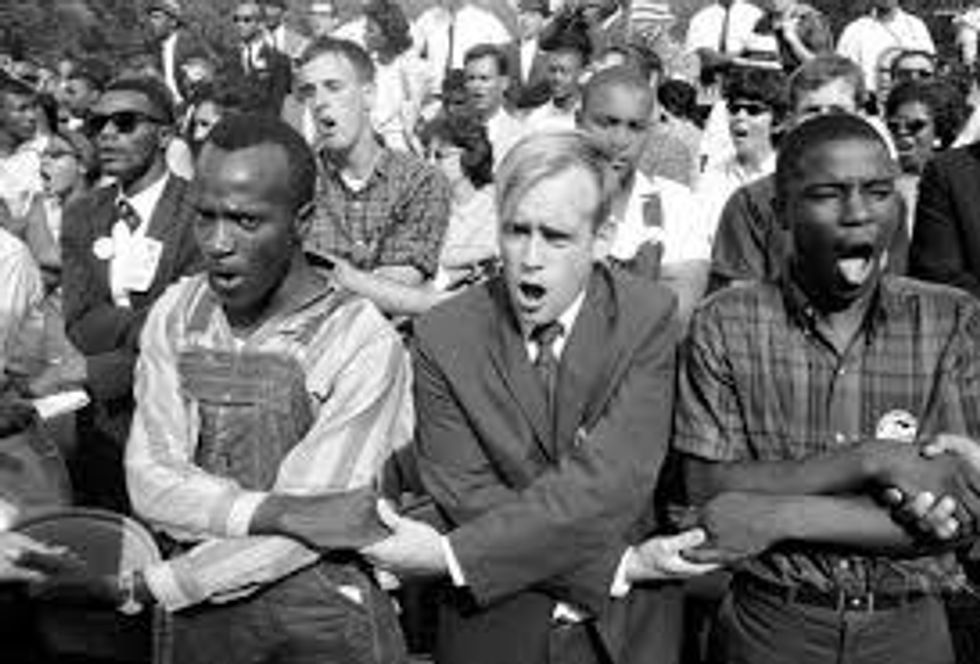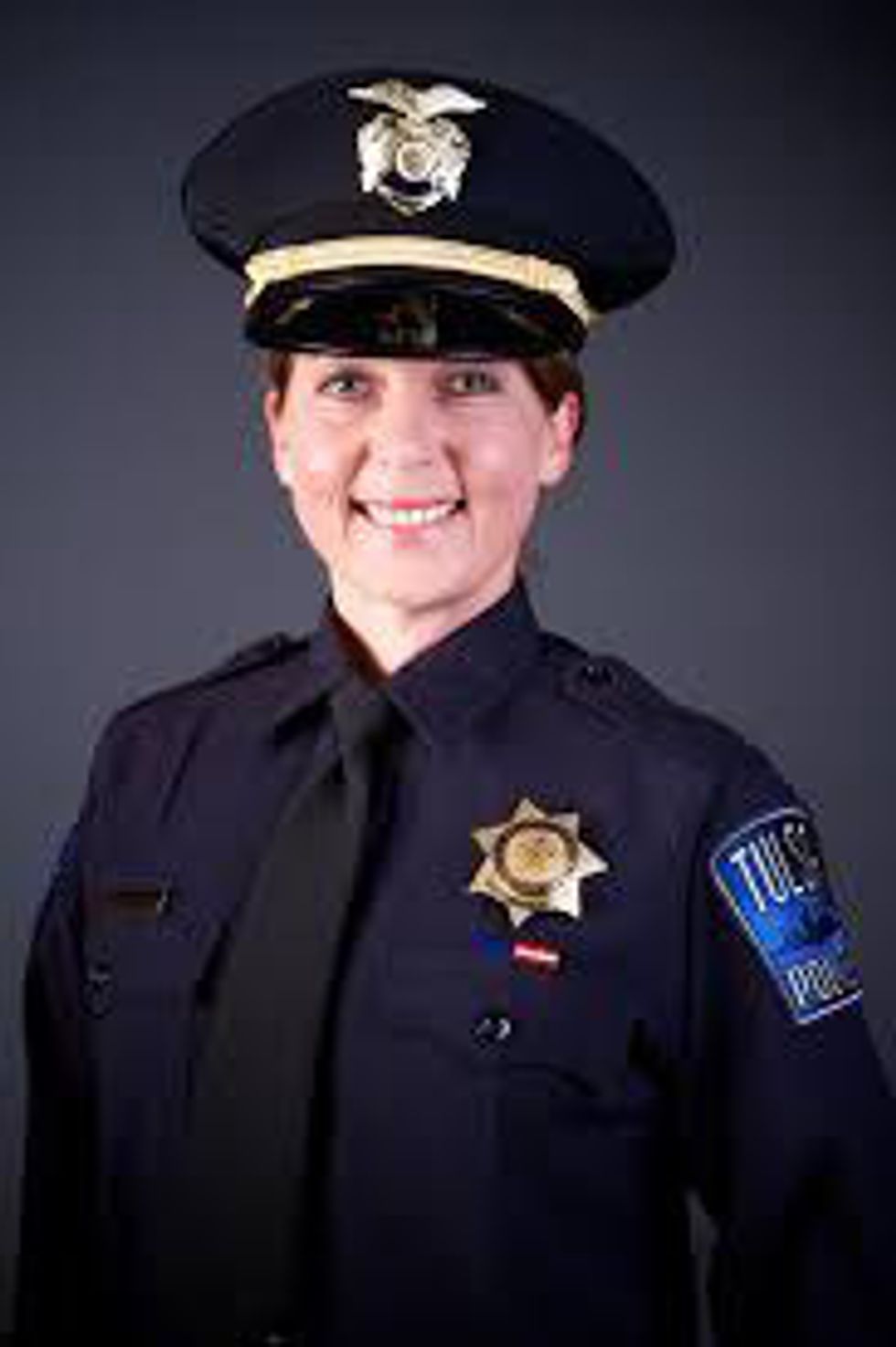A few days ago I read the Rev. King’s Letter from Birmingham Jail for the first time. I was astonished by how the things King said during the tumultuous. and blatantly racist 60s, can still be applied today. Ironically, I think today the way most people feel about King versus how people may have felt about him when he was alive has shifted dramatically. We all now hail him as the great man and peacemaker he was. And so, with America again seemingly just as divided as it was in the 60s, here are five things that we should all take away from King’s letter that I hope will bring us closer.
1. Whatever affects one directly, affects all indirectly:
"Moreover, I am cognizant of the interrelatedness of all communities and states. I cannot sit idly by in Atlanta and not be concerned about what happens in Birmingham. Injustice anywhere is a threat to justice everywhere. We are caught in an inescapable network of mutuality, tied in a single garment of destiny. Whatever affects one directly affects all indirectly. Never again can we afford to live with the narrow, provincial "outside agitator" idea. Anyone who lives inside the United States can never be considered an outsider."
The riots, the shootings, the bombings, all of it, affects us all. Do not believe for a second that what happens in one part of the country — heck, the world— does not affect you. Don’t think that just because you can’t see something, or it does not or has not happened to you, that it does not happen or a person experiencing it has no merit in their words. Whether you see it or not, believe it or not, if it happens it affects you.
2. You cannot criticize the protest without first understanding the cause of it.
"You deplore the demonstrations that are presently taking place in Birmingham. But I am sorry that your statement did not express a similar concern for the conditions that brought the demonstrations into being. I am sure that each of you would want to go beyond the superficial social analyst who looks merely at effects and does not grapple with underlying causes. I would not hesitate to say that it is unfortunate that so-called demonstrations are taking place in Birmingham at this time, but I would say in more emphatic terms that it is even more unfortunate that the white power structure of this city left the Negro community with no other alternative."
I will never condone violence or any other criminal activity that sometimes find their way into otherwise peaceful protests ( Rev. King’s protests were always peaceful — except for all the times other people would, you know, attack them.) What bothers me the most is, like in the 60s, majority of people criticize the mode of protesting oppression, but never want to talk about the actual oppression, the very reason many people feel they must protest. You’ve given them no other option when you refuse to listen or delve deeper than just a t shirt or poster with a logo on it that you decided will offend you.
3. They protest because it causes tension, and tension causes change.
"You may well ask, "Why direct action, why sit-ins, marches, and so forth? Isn't negotiation a better path?" You are exactly right in your call for negotiation. Indeed, this is the purpose of direct action. Nonviolent direct action seeks to create such a crisis and establish such creative tension that a community that has consistently refused to negotiate is forced to confront the issue. It seeks so to dramatize the issue that it can no longer be ignored.[ . . .] I have earnestly worked and preached against violent tension, but there is a type of constructive nonviolent tension that is necessary for growth [. . .] So, the purpose of direct action is to create a situation so crisis-packed that it will inevitably open the door to negotiation. We therefore concur with you in your call for negotiation."
Rev. King said it all.
4. The time for justice is always now.
"Frankly, I have never yet engaged in a direct-action movement that was "well timed" according to the timetable of those who have not suffered unduly from the disease of segregation. For years now I have heard the word "wait." It rings in the ear of every Negro with a piercing familiarity. This "wait" has almost always meant "never." [ . . .] We must come to see with the distinguished jurist of yesterday that "justice too long delayed is justice denied." We have waited for more than three hundred and forty years for our God-given and constitutional rights.[ . . .] I guess it is easy for those who have never felt the stinging darts of segregation to say "wait." But when you have seen vicious mobs lynch your mothers and fathers at will and drown your sisters and brothers at whim; when you have seen hate-filled policemen curse, kick, brutalize, and even kill your black brothers and sisters with impunity; when you see the vast majority of your twenty million Negro brothers smothering in an airtight cage of poverty in the midst of an affluent society; [ . . .] ; when you have to concoct an answer for a five-year-old son asking in agonizing pathos, "Daddy, why do white people treat colored people so mean?"; [ . . .] -- then you will understand why we find it difficult to wait."
Here too, it's all there.
5. Just because it’s legal, doesn’t make it just.
"We can never forget that everything Hitler did in Germany was "legal" and everything the Hungarian freedom fighters did in Hungary was "illegal." It was "illegal" to aid and comfort a Jew in Hitler's Germany. But I am sure that if I had lived in Germany during that time, I would have aided and comforted my Jewish brothers even though it was illegal. If I lived in a Communist country today where certain principles dear to the Christian faith are suppressed, I believe I would openly advocate disobeying these anti-religious laws.
There are two types of laws: there are just laws, and there are unjust laws. I would agree with St. Augustine that "An unjust law is no law at all.”
There are too many people walking away without facing the consequences of their actions, because law says their actions were legal. To update King’s analogy to present day understanding: We can never forget that everything Jim Crow did in the South was “legal” and everything the Civil Rights leaders and protesters did was “illegal.”
Scary isn’t it? It was only 60 years ago that I could go to jail for using the bathroom with white women and girls. That I could be arrested for drinking out of the same water fountain as one of my white friends. It’s terrifying, but it should also motivate us. Look at where we used to be! We are never going back there. So let’s let every action we take from here on out resemble that.
The Civil Rights movement was a success because they were organized, determined and prepared for the long, dangerous fight, but most importantly, because they were unified— black, white, Christian and Jew — they saw right was right, and wrong was wrong.

























